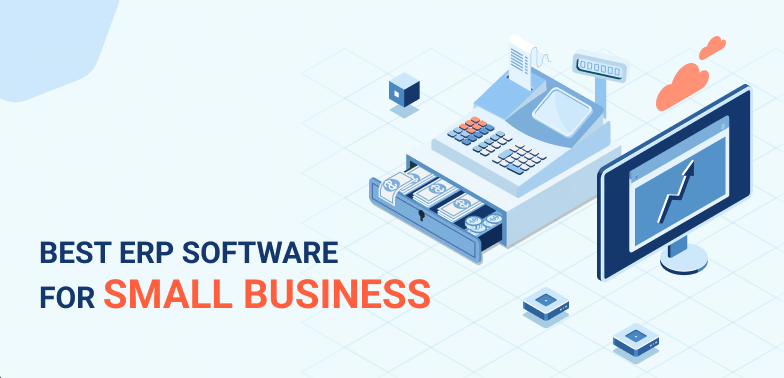
As small businesses continue to scale in 2025, the need for Enterprise Resource Planning (ERP) software has never been more critical. ERP solutions help small businesses integrate core business processes, including finance, inventory, sales, and customer management, into one cohesive system. By adopting the right ERP software, small businesses can streamline operations, reduce costs, and enhance decision-making. In this article, we explore the best ERP solutions for small businesses in 2025, examining their features, benefits, and how they can fuel your growth.

ERP software for small businesses refers to integrated systems that automate and manage core business functions like accounting, inventory management, customer relationship management (CRM), and human resources. Instead of relying on separate software tools for different tasks, small businesses can benefit from a unified solution that improves efficiency, reduces manual errors, and provides real-time insights.
By centralizing data and automating workflows, ERP systems help businesses of all sizes manage resources more effectively, optimize operations, and improve overall productivity.
QuickBooks Online is one of the most popular and user-friendly ERP solutions for small businesses, especially in the area of financial management. While QuickBooks is primarily known for its accounting software, it also includes features that cover inventory management, payroll, and reporting—making it a complete ERP solution for small businesses.
Key Features of QuickBooks Online:
With its simplicity, QuickBooks Online is ideal for small businesses that need an intuitive, cost-effective ERP solution for managing finances and basic operations.
Zoho ERP offers an affordable and scalable suite of tools that can help small businesses manage everything from finance and inventory to CRM and human resources. As part of the larger Zoho Suite, this ERP solution integrates seamlessly with other Zoho products for a complete business management experience.
Key Features of Zoho ERP:
Zoho ERP is perfect for small businesses that need flexibility and scalability, as it can grow with your business and adapt to new requirements over time.
As a cloud-based ERP solution, NetSuite by Oracle is designed for small businesses with aspirations for rapid growth. Known for its comprehensive functionality, NetSuite covers everything from financial management and CRM to e-commerce and supply chain management. It's especially beneficial for small businesses looking to expand their operations while maintaining control and efficiency.
Key Features of NetSuite:
NetSuite is ideal for small businesses with more complex needs, offering an advanced ERP solution with powerful features and scalability.
Sage 50cloud offers a blend of traditional desktop accounting software and cloud-based features, making it an excellent ERP option for small businesses looking for powerful financial tools without the complexity of more advanced ERP solutions. This solution is particularly useful for small businesses that require robust accounting features but also need inventory management and reporting capabilities.
Key Features of Sage 50cloud:
For small businesses focused on strong financial and inventory management, Sage 50cloud offers an affordable and user-friendly ERP solution.
Odoo ERP is an open-source platform that provides an extensive suite of applications tailored to small businesses. With modules covering everything from sales and inventory to project management and human resources, Odoo is highly customizable and adaptable to a variety of industries. It offers both free and paid versions, making it accessible to businesses with different budgets.
Key Features of Odoo ERP:
Odoo is ideal for businesses that need a highly flexible, open-source ERP solution that can be tailored to their unique needs.
With ERP software, small businesses can automate repetitive tasks such as data entry, inventory tracking, and order management. This reduces manual errors, streamlines workflows, and allows employees to focus on more value-added activities, ultimately boosting productivity.
ERP solutions centralize all of a business's data into one system, providing real-time insights into financials, sales, inventory, and customer interactions. This allows managers to make data-driven decisions based on accurate, up-to-date information, improving overall business performance.
One of the most important features of ERP software is its ability to streamline financial management. Small businesses can track expenses, generate invoices, manage payroll, and produce financial reports with ease. With a clear understanding of cash flow, businesses can make more informed decisions about budgeting and investment.
As your business grows, your ERP needs will change. The best ERP solutions for small businesses are scalable, meaning they can accommodate increased complexity and new business functions as your company expands. This ensures that your ERP system grows with you, without the need for a complete overhaul.
By integrating CRM and customer service tools, ERP software helps businesses provide better customer support, manage orders more effectively, and ensure timely delivery of products and services. This leads to improved customer satisfaction and loyalty.
Here’s a quick comparison of the top ERP software solutions for small businesses in 2025:
| ERP Solution | Best For | Key Features | Deployment |
|---|---|---|---|
| QuickBooks Online | Small businesses in finance | Accounting, inventory management, payroll | Cloud-based |
| Zoho ERP | Customizable and scalable | CRM, inventory, project management | Cloud-based |
| NetSuite by Oracle | Growing small businesses | Financial management, CRM, e-commerce integration | Cloud-based |
| Sage 50cloud | Small businesses focused on finance | Accounting, inventory, tax management | Cloud-based, desktop |
| Odoo ERP | Customizable, open-source businesses | Sales, HR, inventory, project management | Cloud-based, on-premise |
Selecting the best ERP software for your small business in 2025 depends on your specific needs, budget, and business goals. Whether you prioritize financial management, inventory tracking, or CRM integration, there is an ERP solution that can help optimize your operations and support your growth.
For small businesses just starting, QuickBooks Online and Zoho ERP offer affordable and user-friendly options. If your business is growing rapidly and requires a more comprehensive solution, NetSuite by Oracle or Odoo ERP provide powerful features and scalability. For businesses focused on robust accounting, Sage 50cloud is an excellent choice.
By choosing the right ERP solution, your small business can gain a competitive advantage in 2025, streamline operations, and position itself for long-term success.